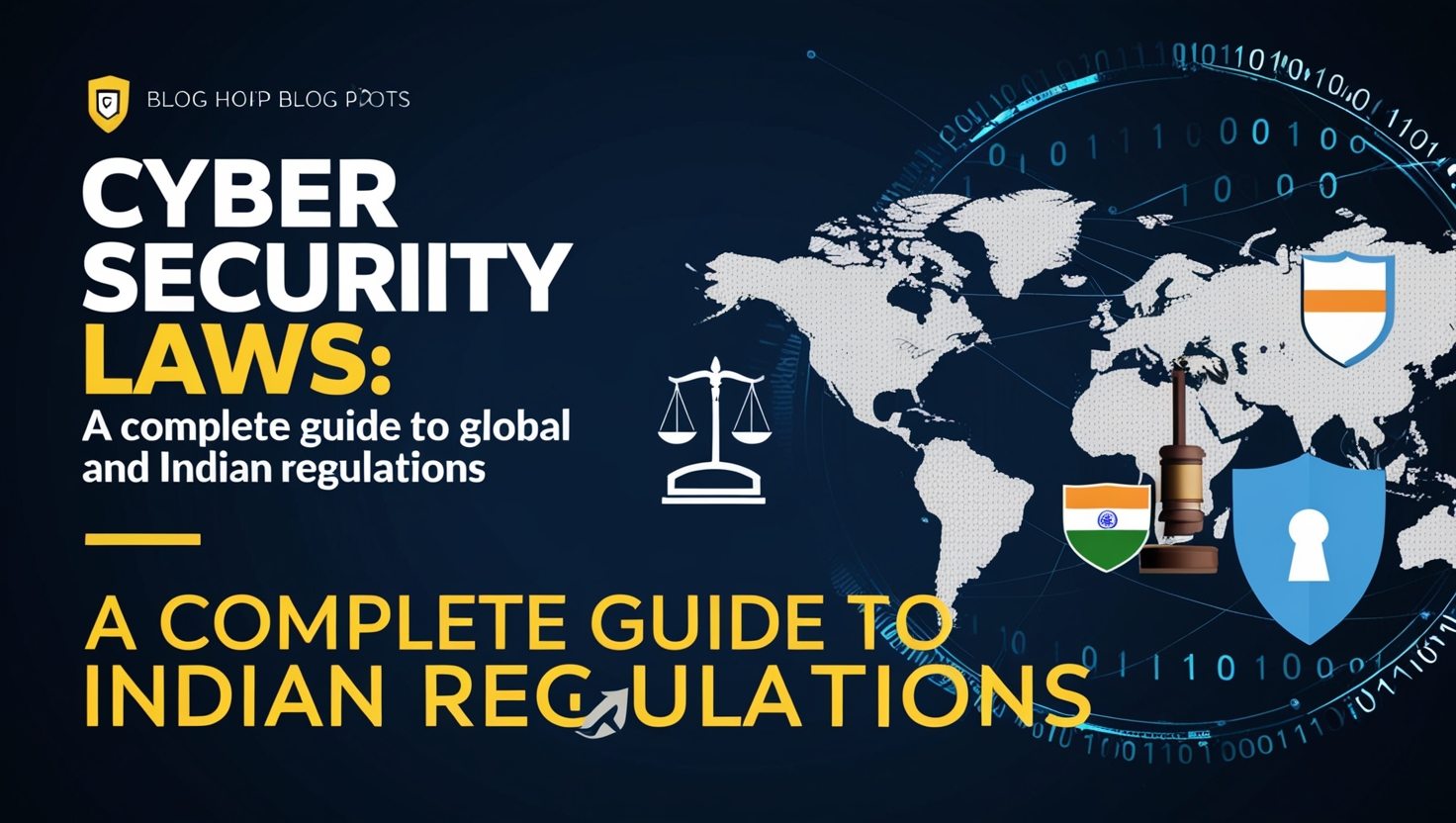In today’s digital age, Cyber Security Laws play a crucial role in safeguarding sensitive data, protecting privacy, and combating cyber crimes. With the rise of online threats, governments and organizations worldwide have established stringent regulations to ensure a secure digital environment. This blog will explore everything you need to know about Cyber Security Laws, including global and Indian regulations, their objectives, challenges, and future trends.
1. Introduction to Cyber Security Laws
Cyber Security Laws are legal frameworks designed to protect digital systems, networks, and data from unauthorized access, breaches, and cyber attacks. These laws aim to ensure the confidentiality, integrity, and availability of information in the digital space. As cyber threats continue to evolve, Cyber Security Laws have become essential for governments, businesses, and individuals to mitigate risks and maintain trust in the digital ecosystem.
2. Global Cyber Security Laws and Regulations
Different countries have implemented their own Cyber Security Laws to address the growing threat of cyber crimes. Some of the most notable global regulations include:
- GDPR (General Data Protection Regulation): A European Union law that focuses on data protection and privacy.
- CCPA (California Consumer Privacy Act): A U.S. law that grants consumers control over their personal data.
- HIPAA (Health Insurance Portability and Accountability Act): A U.S. law that protects sensitive patient health information.
These laws emphasize the importance of data protection, transparency, and accountability in the digital world.
3. Cyber Security Laws in India
India has also taken significant steps to strengthen its Cyber Security Laws. The primary legislation governing cyber security in India is the Information Technology Act, 2000. Key features of this act include:
- Section 43: Penalties for unauthorized access to computer systems.
- Section 66: Punishment for hacking and data theft.
- Section 66A: (Repealed) Previously addressed offensive online communication.
Additionally, CERT-In (Indian Computer Emergency Response Team) plays a vital role in responding to cyber security incidents and ensuring compliance with regulations.
4. Key Objectives of Cyber Security Laws
The primary objectives of Cyber Security Laws are:
- Protecting sensitive data and ensuring privacy.
- Preventing cyber crimes such as hacking, phishing, and identity theft.
- Establishing accountability for organizations handling digital data.
- Promoting trust and confidence in digital transactions.
5. Types of Cyber Crimes Covered Under Cyber Laws
Cyber Security Laws address a wide range of cyber crimes, including:
- Hacking: Unauthorized access to computer systems.
- Phishing: Fraudulent attempts to steal sensitive information.
- Ransomware: Malicious software that encrypts data and demands payment.
- Cyber Terrorism: Use of digital tools to create fear or disrupt critical infrastructure.
These laws provide a legal framework to prosecute offenders and deter future crimes.
6. Data Protection and Privacy Laws
Data protection is a critical aspect of Cyber Security Laws. Regulations like GDPR and India’s proposed Personal Data Protection Bill focus on:
- Ensuring individuals’ control over their personal data.
- Mandating organizations to implement robust data security measures.
- Imposing heavy penalties for data breaches and non-compliance.
7. Challenges in Enforcing Cyber Security Laws
Despite their importance, enforcing Cyber Security Laws comes with several challenges:
- Lack of Awareness: Many individuals and organizations are unaware of cyber security regulations.
- Jurisdictional Issues: Cyber crimes often cross borders, making it difficult to prosecute offenders.
- Rapidly Evolving Threats: Cyber criminals constantly adapt to new technologies, outpacing existing laws.
8. Role of Governments and Organizations in Cyber Security
Governments and organizations play a crucial role in implementing and enforcing Cyber Security Laws. Key initiatives include:
- Establishing dedicated cyber security agencies (e.g., CERT-In, INTERPOL).
- Promoting public-private partnerships to enhance cyber resilience.
- Conducting awareness campaigns to educate citizens about cyber threats.
9. Penalties and Consequences of Violating Cyber Security Laws
Non-compliance with Cyber Security Laws can result in severe penalties, including:
- Heavy fines and legal actions.
- Damage to an organization’s reputation.
- Loss of customer trust and business opportunities.
For example, companies like Facebook and Google have faced multi-million-dollar fines for violating data protection laws.
10. Future of Cyber Security Laws
As technology advances, Cyber Security Laws must evolve to address emerging threats. Key trends include:
- AI and Machine Learning: Leveraging AI to detect and prevent cyber attacks.
- Quantum Computing: Preparing for the potential risks posed by quantum technologies.
- Global Cooperation: Strengthening international collaboration to combat cyber crimes.
11. How Businesses Can Comply with Cyber Security Laws
Businesses can ensure compliance with Cyber Security Laws by:
- Conducting regular security audits and risk assessments.
- Implementing robust data protection measures.
- Training employees on cyber security best practices.
- Adopting frameworks like ISO 27001 and NIST.
12. Cyber Security Laws for Individuals
Individuals can protect themselves under Cyber Security Laws by:
- Using strong passwords and multi-factor authentication.
- Avoiding suspicious emails and links.
- Reporting cyber crimes to the appropriate authorities.
13. Case Studies: Cyber Security Laws in Action
Real-world examples highlight the importance of Cyber Security Laws:
- The WannaCry Ransomware Attack: Exploited vulnerabilities in outdated systems, leading to global losses.
- The Equifax Data Breach: Exposed sensitive data of millions, resulting in hefty fines and legal actions.
14. Conclusion: The Importance of Cyber Security Laws
Cyber Security Laws are essential for protecting digital systems, data, and privacy in an increasingly connected world. By staying informed and compliant, governments, businesses, and individuals can contribute to a safer digital ecosystem.
15. FAQ Questions
Q1. What are Cyber Security Laws?
Cyber Security Laws are legal frameworks designed to protect digital systems and data from cyber threats.
Q2. What is the importance of Cyber Security Laws?
They ensure data protection, prevent cyber crimes, and promote trust in digital transactions.
Q3. What are the penalties for violating Cyber Security Laws?
Penalties include fines, legal actions, and reputational damage.
Q4. How can businesses comply with Cyber Security Laws?
By conducting audits, implementing security measures, and training employees.


Leave a Reply